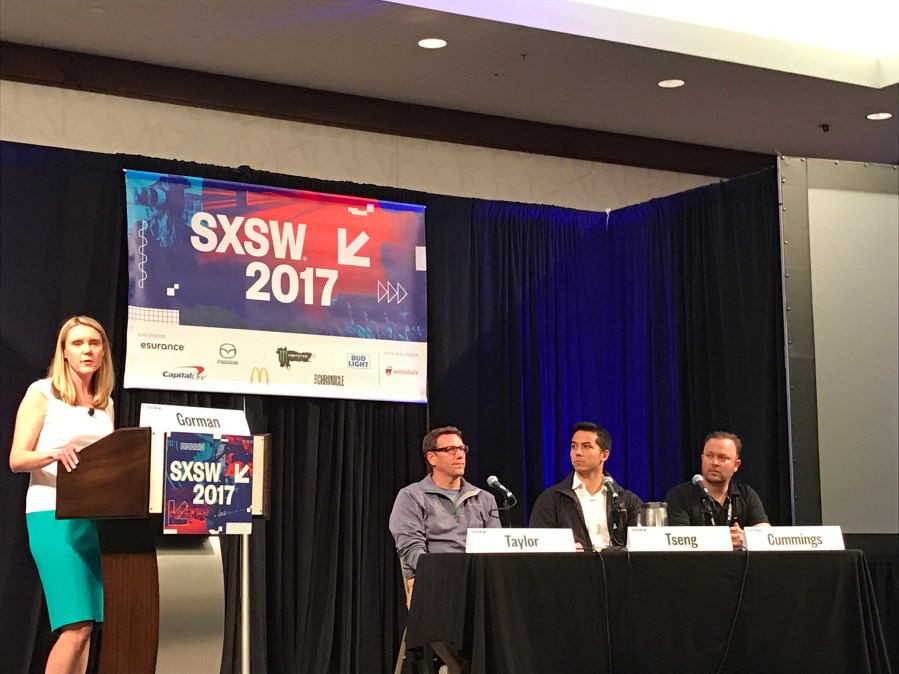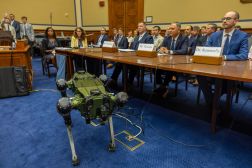What it’s like to work with DIUx

Working with the government is often a sluggish process — but it doesn’t have to be, says Brandon Tseng, co-founder and CFO of artificial intelligence company Shield AI.
The Pentagon’s Defense Innovation Unit Experimental, known as DIUx, has sped things up, Tseng said Friday at the SXSW Conference in Austin. Shield AI worked with DIUx, and its first contract with the Pentagon’s acquisition group “was a million-dollar contract that took about 60 days to move through the process.”
“That is an order of magnitude bigger than any ‘B’ contract in the same amount of time. So a great [business-to-business] contract is $100,000 and takes about 60 days,” he said.
“DIUx is working,” Tseng said during a panel discussion about ‘Harnessing Today’s Innovation Culture for Uncle Sam.’
He later added: “And then we were able to add on another contract in a similar time frame because of the model they’ve created.”
What does government even need?
Craig Cummings, co-founder and general partner of Moonshots Capital said a lot of startups just don’t know how to even go about identifying problems the government might need solved.
Tseng agreed: “One of the hardest things for a startup to do in selling to the government is identifying those problems.”
But DIUx has helped make those problems “less opaque,” Tseng said, and it also works to connect with other government organizations.
As an example, Tseng pointed to the Department of Homeland Security, and DIUx’s relationship with the department’s innovation group.
Shield AI also has a contract with the DHS, which has its own Silicon Valley innovation program that DIUx is “very much tied into.”
DIUx’s network “might not be the whole government right now but they’re working with the players that matter, working toward innovative solutions.”
Avoiding the one-off trap
“I think when working with the government normally the government wants a one-off, highly-customized solution. DIUx is very much concerned that you do not do something that’s one-off and highly customized,” Tseng said. “They want to be able to quickly adapt the technology that’s available in the commercial markets and bring it into the DOD.”
DIUx partner Isaac Taylor said the organization prefers that the companies it works with have other large customers and that they are in hyper-competitive markets, which ensures they are held accountable by the market.
There are hundreds of millions of dollars of investments in the pipeline right now, Taylor said, “but we’re in that process of being picky, and very carefully vetting and choosing the technologies that we want to invest in.”
And for every dollar DIUx is investing in, other areas of the military have invested more than $3, he added.






